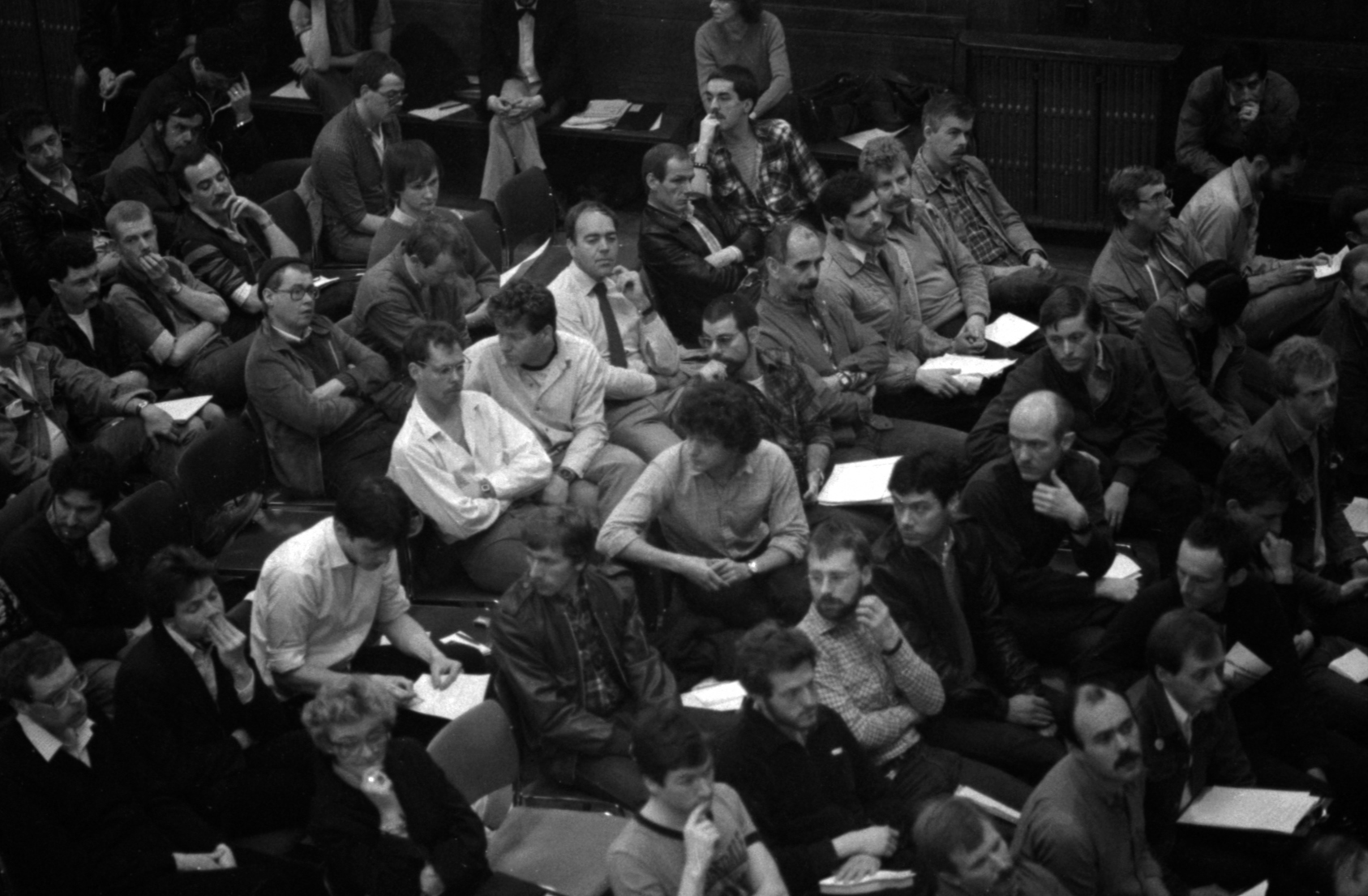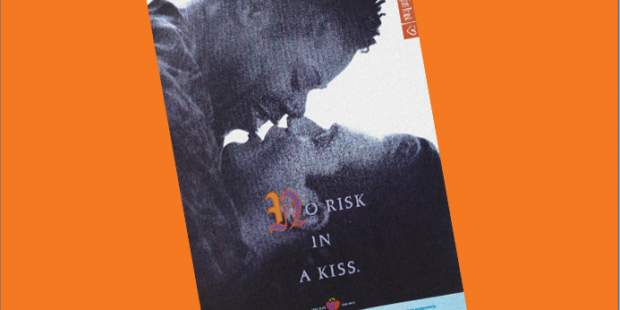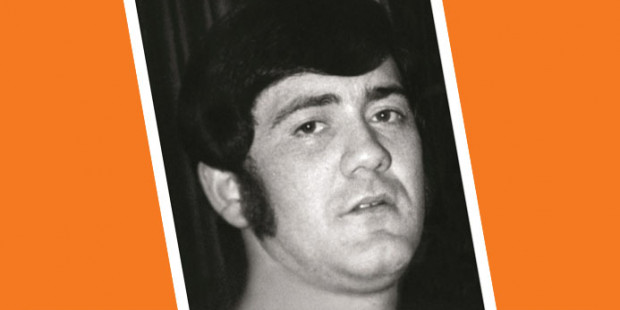
1981
First cases of 'Gay-Related Immune Deficiency' (GRID) are identified in the United States.
1982
Terry Higgins dies at St Thomas' Hospital. The Terry Higgins Trust is set up.
GRID is renamed Acquired Immune Deficiency Syndrome (AIDS) after the same immune deficiency syndrome is found in Haitians and heterosexual women.
1983
Three thousand AIDS cases have been reported in the USA with 1,000 dead.
London Gay Switchboard and the Gay Medical Association hold a public meeting about AIDS at Conway Hall.
A second public meeting is held at the London Apprentice in August – we're reborn as the Terrence Higgins Trust.
The first Terrence Higgins Trust health promotion leaflet is published, and the first appeal for Buddies is made.
France's Pasteur Institute discovers lymphadenopathy associated virus (LAV). Researchers believe causes AIDS, meaning that it is an infectious condition.
Television programmes Panorama and Horizon run documentaries about the new disease.
Scottish Aids Monitor (SAM) is set up to educate gay men about the threat of HIV and AIDS.
1984
Terrence Higgins Trust becomes a registered charity and we move into our first office: one room at Panther House in Mount Pleasant.
The Helpline starts up, operating from 8pm to 10pm on weekdays.
We form Europe's first People with AIDS (PWA) support group, and our first national conference, 'AIDS UK 84'.
In the US, Dr Robert Gallo isolates the retrovirus called HTLV-III, which is also believed to cause AIDS.
HIV genetic variations are discovered, making the development of a vaccine more difficult.
The first European AIDS conference is held.
By the end of 1984, there have been 108 AIDS cases and 46 deaths in the UK.
1985
We apply to the Greater London Council (GLC) for a £17,000 grant to pay staff salaries. Westminster Council challenges the validity of the GLC's decision to award Terrence Higgins Trust a grant and is overruled by the High Court.
The first Terrence Higgins Trust candlelight vigil is held in Trafalgar Square.
We rent a second room in Panther House and employ our first two full-time paid members of staff. One of them is Nick Partridge, who went on to become our chief executive.
The first meeting takes place between Terrence Higgins Trust and the government.
Scientists agree that the LAV and HTLV-III viruses are the same.
The Department of Health publishes its first advice on AIDS to medical practitioners.
The Health Education Council produces its first literature on AIDS.
Actor Rock Hudson dies with AIDS.
Body Positive, the first UK self-help group for people with HIV, is founded in London.
AIDS reported in 51 countries.
First report of the transmission of the virus from mother to child through breastfeeding is published.
An HIV test is developed and blood donation centres start screening for HIV.
GUM clinics start offering HIV testing.
HIV arrives among the drug injecting population on the east coast of Scotland and the introduction of a number of punitive measures around needle possession rapidly generate an HIV epidemic. Subsequent prevention strategies, including the introduction of a network of needle exchanges and methadone maintenance programmes, lead to the successful containment of the epidemic.
1986
The Legal Services Group is set up to offer legal consultancy to clients.
Interfaith Group, Women's Group and Family Support Group are set up.
We produce our first safer sex video, Gearing Up for Safer Sex, with Clean Cut.
The World Health Organisation (WHO) launches its global AIDS strategy.
UK government sets up a Cabinet Committee on AIDS.
The government launches its first AIDS health education campaign, ‘Don’t Aid Aids’, which has little public impact.
John Fitzpatrick is appointed our first chief executive.
1987
Terrence Higgins Trust moves to Gray's Inn Road in King's Cross, London.
We employ our first health education officer, health information officer, volunteer co-ordinator and legal officer.
Stephen Fry produces ‘Hysteria’, a comedy benefit for Terrence Higgins Trust.
The government launches the 'Don't Die of Ignorance' campaign and delivers the campaign leaflet to every household.
Our phone number is listed as a source of information and advice on the government leaflet.
Mark Ashton, co-founder of Lesbian and Gays Support the Miners, died of an AIDS-related illness on 11 February. His friends would later set up the Mark Ashton Red Ribbon Fund in his memory with the proceeds going to Terrence Higgins Trust.
Princess Diana opens the first specialist AIDS hospital ward in England at Middlesex Hospital.
UK HIV organisations Positively Women and the National AIDS Trust are launched.
The Football Association warns players not to use communal baths or to swap shirts at the end of a game.
The AIDS memorial quilt is started by San Francisco gay rights activist Cleve Jones, who made the first panel in memory of his friend Marvin Feldman.
Photographs taken by John Sturrock of people living with HIV/AIDS on the Muirhouse Housing Estate, Edinburgh, serve as the initial inspiration for the Postive Lives project.
1988
We employ our first welfare rights officer.
The Helper Cell Group is formed to provide practical help to people with HIV.
Tales of the City author Armistead Maupin signs copies of his books at our offices to raise funds.
We release 1,000 balloons to commemorate the first World AIDS Day on 1 December, roughly matching the number of recorded UK AIDS cases in 1987.
London Lighthouse opens as a residential and support centre for people with HIV.
British insurers call for HIV tests for all men seeking policy cover of more than £50,000.
1989
'Hysteria 2', a Terrence Higgins Trust fundraising event produced by Stephen Fry, is broadcast on Channel 4, together with a Terrence Higgins Trust telethon.
The government's Cabinet committee on AIDS is disbanded.
Foundation of Frontliners, the UK’s first PWA organisation run for and by people with HIV.
Robert Mapplethorpe, the American photographer, dies with AIDS.




